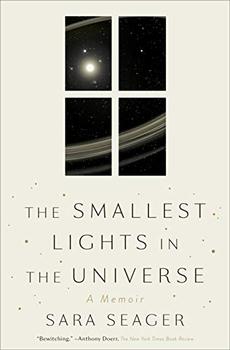Summary | Excerpt | Reading Guide | Reviews | Beyond the book | Read-Alikes | Genres & Themes | Author Bio

When Breath Becomes Air is the autobiography of Paul Kalanithi, written in the time period between his being diagnosed with cancer and his death from the disease twenty-two months later at the age of 37.
Kalanithi's career was about to take off in 2013 as he was finishing his residency in neurological surgery and completing a postdoctoral fellowship in neuroscience at Stanford. His future seemed very bright, the possibilities endless. His resume was impressive: he had graduated from Stanford with degrees in English literature and human biology; earned a Master of Philosophy in history and philosophy of science and medicine from Cambridge, and graduated cum laude from the Yale School of Medicine. Tragically, Kalanathi's prospects were completely derailed when he began to have health issues, particularly excruciating back pain that was so bad he could barely stay upright for long periods of time. He began to suspect that he had cancer but delayed having his diagnosis confirmed until it could wait no longer. One look at his CT scan and he knew: he had metastatic lung cancer, for which there was no cure.
Kalanithi always loved the written word and hoped to write – later in his life, when his medical career was winding down. Realizing he was dying, he began penning his personal story in the hours after completing his surgeries. The book begins with his childhood in Arizona and progresses through his decision to switch from literature to science, eventually pursuing neurosurgery. Underlying the bare biographical narrative is the author's incredible curiosity about the meaning of life. "Where did biology, morality, literature, and philosophy intersect?" he ponders. As the book progresses, it becomes more philosophical, searching for what it takes for people to find significance in their existence as it becomes apparent their time is finite.
The writing can at times be a little clinical and abstruse as Kalanithi dips into metaphysical questions (e.g., if science provides no basis for God, does it logically follow that life has no meaning?). For the most part, the account is highly personal and moving, particularly as Kalanithi becomes increasingly ill:
Time for me is now double-edged: every day brings me further from the low of my last relapse but closer to the next recurrence – and, eventually, death. Perhaps later than I think, but certainly sooner than I desire. There are, I imagine, two responses to that realization. The most obvious might be an impulse to frantic activity: to "live life to its fullest," to travel, to dine, to achieve a host of neglected ambitions. Part of the cruelty of cancer, though, is not only that it limits your time; it also limits your energy, vastly reducing the amount you can squeeze into a day. It is a tired hare who now races. And even if I had the energy, I prefer a more tortoise-like approach. I plod, I ponder. Some days, I simply persist.
In the book's afterword, Kalanithi's wife Lucy writes: "What happened to Paul was tragic, but he was not a tragedy" – and the narrative bears that out. The prose is contemplative but its tone isn't elegiac. At the conclusion I did feel a sense of sorrow at the loss of so talented a person, but more than that I found myself marveling at the author's courage and his willingness to share his experiences and thoughts. It also kept me thinking about my own transience. The book will certainly stay with readers for a long time, perhaps even change them permanently.
Lucy also explains why her husband chose to spend his last days writing When Breath Becomes Air:
He wanted to help people understand death and face their mortality. Dying in one's fourth decade is unusual now, but dying is not. "The [thing about] lung cancer is that it's not exotic," Paul wrote in an email to his best friend, Robin. "It's just tragic enough and imaginable enough. [The reader] can get into these shoes, walk a bit, and say, 'So that's what it looks like from here… sooner or later I'll be back here in my own shoes.' That's what I'm aiming for, I think. Not the sensationalism of dying, and not the exhortations to gather rosebuds, but: Here's what lies up ahead on the road."
Mission accomplished.
![]() This review was originally published in The BookBrowse Review in February 2016, and has been updated for the
December 2016 edition.
Click here to go to this issue.
This review was originally published in The BookBrowse Review in February 2016, and has been updated for the
December 2016 edition.
Click here to go to this issue.

If you liked When Breath Becomes Air, try these:

by Garth Greenwell
Published 2025
A medical crisis brings one man close to death―and to love, art, and beauty―in a profound and luminous novel by award-winning author Garth Greenwell.

The Smallest Lights in the Universe
by Sara Seager
Published 2021
In this luminous memoir, an MIT astrophysicist must reinvent herself in the wake of tragedy and discovers the power of connection on this planet, even as she searches our galaxy for another Earth.
Your guide toexceptional books
BookBrowse seeks out and recommends the best in contemporary fiction and nonfiction—books that not only engage and entertain but also deepen our understanding of ourselves and the world around us.